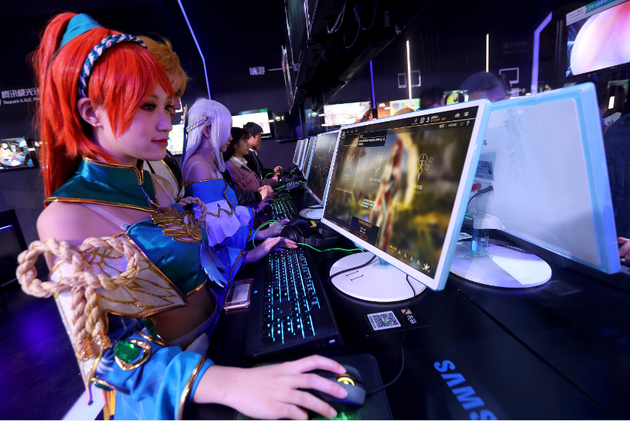
Photo/NBD
Dec. 26 (NBD) -- Game companies applauded Chinese regulators' decision to resume video game approvals after a nine-month freeze.
Senior executives of Shanda Games and Tencent Games on Tuesday said to the 21st Century Business Herald newspaper that they are waiting for the video game approvals, adding that restart of game approvals is good news for the entire game industry and represents directions for the industry given by the authorities.
Last Friday, when addressing the China Game Industry Annual Conference, Feng Shixin, an official of the Publicity Department of the Communist Party of China Central Committee, revealed that a batch of games has been reviewed and licenses will be issued soon. But Feng noted that it will take a while to complete the work due to the large number of games waiting to be reviewed and called for patience from industry insiders.
According to an earlier report by Financial Times, more than 5,000 games in the pipeline await licenses.
Sources at Shenzhen-based iDreamSky told the 21st Century Business Herald that the company plans to continue purchasing and operating licensed games. To cope with the changes in the regulatory environment, iDreamSky chose to run popular games such as Temple Run 2 and Subway Surfers in a way to prolong the operating cycle of the games. In this case, for publishers like iDreamSky, the impact brought by regulations exists but remains under control.
However, regulatory uncertainties this year dealt a heavy blow to listed game companies, causing substantial price fluctuations, according to Zhang Yi, CEO of consulting agency iiMedia Research Group.
Previously, when fewer restrictions on game approval were put in place, gaming giants like Tencent and NetEase developed and published numerous mobile games to grab the market share, as the cost for the trial-and-error process is relatively small. But after the regulations on games got tightened, such strategy will no longer work out. As a result, those leading game enterprises have to make every game count, explained Zhang Yi.
Zhang also predicted that China's domestic gaming industry will still face intensive regulations next year, despite the move by authorities to resume game approval.
Game publishers are seeking for new growth engines in cold winter. Overseas expansion is evidently the major choice.
A report on China's gaming industry showed that the actual sales revenue of online games in China rose 5.3 percent year on year to 214.44 billion yuan (31.1 billion U.S. dollars) in 2018, whereas the actual overseas sales revenue of China's independently developed online games jumped 15.8 percent year on year to 9.59 billion U.S. dollars during the same period of time.
As Zhang pointed out, gaming behemoths Tencent and NetEase see overseas expansion as their primary strategy in 2019, and many foreign funds and investment institutions are paying attention to Chinese game companies.
Stock prices of listed game enterprises in the secondary market have plummeted due to the freeze on game approvals, but their stocks will possibly bounce back in 2019 thanks to the ease on game licenses, Zhang predicted.
Email: gaohan@nbd.com.cn


 川公网安备 51019002001991号
川公网安备 51019002001991号





